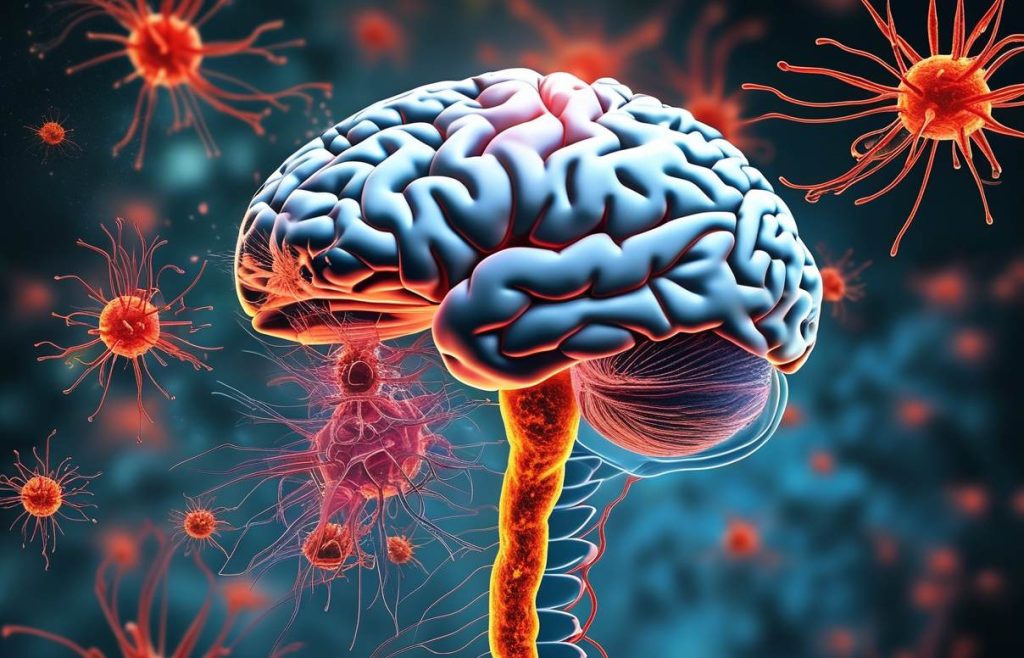Medical Marijuana for Hydrocephalus
- John DiBella
- Published: November 29, 2024
- Fact-checked by Dr. Desiree Granados

Hydrocephalus is a complex neurological condition that can lead to significant challenges for those affected. As research into medical cannabis continues to evolve, many individuals are exploring its potential to alleviate symptoms associated with hydrocephalus.
If you’re curious about the relationship between marijuana and hydrocephalus, this guide will provide valuable insights into how cannabis might help manage symptoms, eligibility for a medical marijuana card, and much more.
Does Marijuana Help with Hydrocephalus?
While cannabis does not cure hydrocephalus, studies suggest that it might help manage symptoms associated with the condition, such as chronic pain, nausea, and inflammation. Medical marijuana’s active compounds, cannabinoids like THC and CBD, interact with the body’s endocannabinoid system (ECS), which plays a role in regulating neurological and immune functions.
Research indicates that cannabis’s anti-inflammatory and neuroprotective properties might mitigate some of the complications of hydrocephalus. For instance, reducing inflammation in the brain may help relieve pressure, while its analgesic effects might alleviate headaches and pain often associated with the condition.
Patients also report that medical marijuana can improve their quality of life by reducing anxiety and promoting relaxation. However, further research is needed to fully understand its long-term impact on hydrocephalus symptoms.
What Is Hydrocephalus and What Are Its Symptoms?
Hydrocephalus is a condition characterized by an abnormal buildup of cerebrospinal fluid (CSF) in the brain’s ventricles, leading to increased pressure. This can occur at any age, but it is most common in infants and older adults. Causes may include genetic abnormalities, brain injuries, infections, or complications from surgery.
The symptoms of hydrocephalus vary by age:
- Infants: Enlarged head size, bulging soft spots, vomiting, irritability.
- Children and Adults: Headaches, nausea, vision problems, balance issues, and cognitive impairments.
- Older Adults: Difficulty walking, memory problems, and urinary incontinence.
Traditional treatments for hydrocephalus include shunt systems and endoscopic third ventriculostomy (ETV) to redirect or reduce excess CSF. While these methods are effective in managing the condition, they may not fully address associated symptoms like chronic pain, which is where medical marijuana could play a complementary role.
Can You Get a Medical Marijuana Card for Hydrocephalus?
Yes, you can get a medical marijuana card in several states. The states that specifically list hydrocephalus as a qualifying condition are Connecticut and Illinois. However, just because hydrocephalus is not specifically listed does not mean you cannot acquire a card to treat the condition.
For example, half of all states with a medical marijuana program can issue a card for chronic pain, a common symptom for individuals with hydrocephalus. In other states such as New York, Virginia, and Washington D. C., doctors can prescribe medical marijuana to any individual they believe would benefit from its therapeutic effects.
To learn more about eligibility and the process, consult a certified medical marijuana doctor in your state. If you’re in Pennsylvania, check out our medical marijuana card services to get started.

How to Use Marijuana for Hydrocephalus
Medical marijuana is available in various forms, allowing patients to choose the method that best suits their needs:
- Edibles and Gummies: Ideal for patients who prefer not to smoke or vape. They offer a long-lasting effect.
- Tinctures and Oils: Easy to dose and administer, offering quick relief when placed under the tongue.
- Topicals: Useful for localized pain relief, such as headaches or neck pain.
- Vaping or Smoking: Provides rapid symptom relief but may not be suitable for everyone.
The Sanctuary Wellness Institute recommends consulting with a medical marijuana doctor to determine the appropriate dosage and form for managing your symptoms effectively.
What Are the Best Marijuana Strains for Hydrocephalus?
Certain cannabis strains may be particularly beneficial for hydrocephalus symptoms:
- ACDC (high CBD, low THC): May help reduce inflammation and anxiety without causing psychoactive effects.
- Northern Lights (Indica): Known for its relaxing and pain-relieving properties, which might ease headaches.
- Harlequin (balanced CBD and THC): Often used for pain and nausea relief while maintaining mental clarity.
Choosing the right strain is important. For a deeper dive into the differences between Indica and Sativa strains, visit our Indica vs. Sativa guide.
Potential Risks and Side Effects of Using Cannabis for Hydrocephalus
While most patients tolerate medical marijuana well, it’s essential to be aware of potential side effects, which might include:
- Drowsiness or dizziness
- Dry mouth
- Changes in appetite
- Psychoactive effects, especially with high-THC strains
Adverse effects are rare when marijuana is used responsibly and under the guidance of a medical professional. Always discuss your treatment plan with your doctor to ensure it aligns with your specific needs and health conditions
Conclusion
Medical marijuana might offer a promising way to alleviate some symptoms of hydrocephalus, including pain, inflammation, and nausea. As research progresses, more individuals are discovering how cannabis can improve their quality of life when used as part of a comprehensive treatment plan.
If you’re interested in exploring medical marijuana as an option, The Sanctuary Wellness Institute is here to help. Schedule an appointment with a medical marijuana doctor today to learn more about obtaining your card.
States Where We Offer Medical Marijuana Card Services
How we reviewed this article:
- Seegehalli M Anil, Hadar Peeri, Hinanit Koltai (2022). Medical Cannabis Activity Against Inflammation: Active Compounds and Modes of Action
https://pmc.ncbi.nlm.nih.gov/articles/PMC9124761/ - National Institute of Neurological Disorders and Stroke (2024). Hydrocephalus
https://www.ninds.nih.gov/health-information/disorders/hydrocephalus - Penn Medicine. Hydrocephalus
https://www.pennmedicine.org/for-patients-and-visitors/patient-information/conditions-treated-a-to-z/hydrocephalus - Leafly (2024). Northern Lights
https://www.leafly.com/strains/northern-lights - Leafly (2024). Harlequin
https://www.leafly.com/strains/harlequin
Current Version
November 29, 2024
Written By
John DiBella
Fact-checked By
Dr. Desiree Granados
Editorial Process
Our Editorial Process
Other Posts About Medical Marijuana Treatment

John DiBella is the co-founder and CEO at The Sanctuary Wellness Institute. His goal is to foster healthier lifestyles to improve individuals’ quality of life and health span through online medical and non-medical services. When he’s not writing health & wellness articles for The Sanctuary, he enjoys hiking, camping, surfing and sailing.







